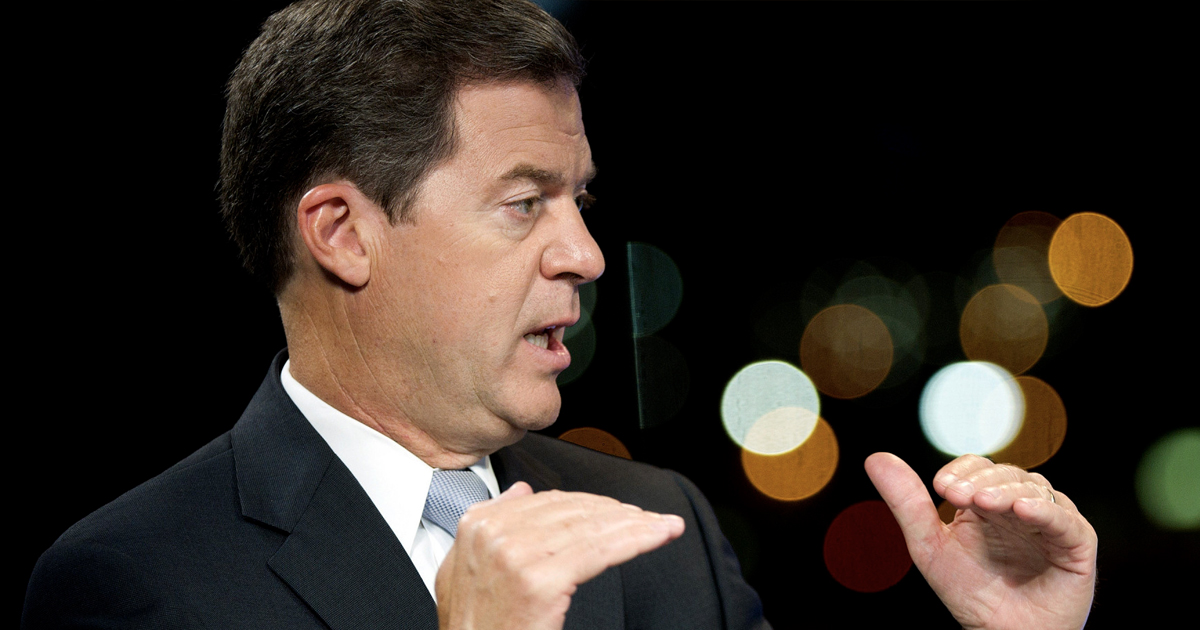Last week, second-term Kansas governor Sam Brownback lost a legal battle over underfunding schools. The state’s Supreme Court has ordered him to rethink his method of funding schools, further highlighting the Republican governor’s fiscal failures. Taking conservative policies to the extreme, the governor cut taxes on the wealthiest citizens in his state by a whopping 29 percent, while completely doing away with taxes on farmers or business owners.
With no tax dollars rolling in, the Republican governor had to make massive cuts to education funds in the state. $17 million was stripped from Universities, while $93 million came out of teachers’ pension funds. Those cuts came nowhere close to closing the budget gap. These shortfalls then drove the Republican-controlled Senate to propose even more education cuts, $120 million over a 4-month span, pared with the biggest tax increases they were legally allowed. Educators pressured the state legislators to drop the proposed cuts, but the Senate did pass the increase in taxes. However, Gov. Brownback vetoed that measure.
Now, Brownback faces an even deeper fiscal deficit. The Kansas Supreme Court ruled last week that the governor’s underfunding of the lowest performing 25 percent of schools violated the state’s constitution. The court has ordered that a new finance formula be devised by June 30. Depending on how state lawmakers make their calculations, the new formula will cost between $431 and $893 million. Overall, Republican lawmakers estimate that they will have to find $1 billion annually in the budget, either through tax increases or cuts elsewhere in the budget, to comply.
Republican Representative Brenda Landwehr is concerned that they will have to look to Medicaid cuts to help fund the shortfalls, after already seeing four percent in cuts. “Do you just fund the schools and you don’t fund those other services, only for them (the school districts) to come back and sue us again in a few years?” Landwehr said to The Wichita Eagle.
Of course, Gov. Brownback blamed the Supreme Court ruling and the underfunding of failing schools on the previous model of calculating funding. Brownback said in a statement,
“[t]he old funding formula failed our students, particularly those that struggle most. The new funding system must right this wrong.”
Brownback was elected on his enthusiasm for supply-side economics, but his extreme measures put his state in the poorhouse. His tax cuts were supposed to draw businesses to the state, creating more jobs and thus, more tax revenue. Instead, job growth in Kansas fell behind the national average, bringing in just a few hundred jobs compared to the 100,000 promised by Brownback in his second term.
The Conservative Tax Foundation has even denounced Brownback’s cuts. Scott Drenkard, economist for the non-profit group told Kansas’ legislature that businesses simply pocketed the tax savings, instead of spending it to grow the economy.
So, how has Gov. Brownback proposed to fix the budget crisis? So far, he has refused to raise taxes and refuses to go back to the old educational formula, but has toyed with the idea of borrowing from future payments from a tobacco settlement. Otherwise, Brownback is sticking to his guns without taking any responsibility or offering any real solutions. “You’ve got some global issues that are going on that we have absolutely no control over,” Brownback recently told reporters.
Even his own party is leaving him out to dry on those claims. Republican Representative Mark Hutton says,
“let him own it. It’s his policy that put us there.”


